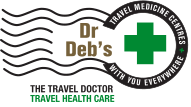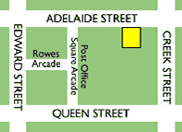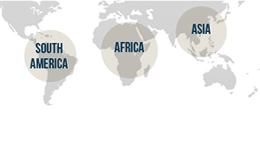Mpox and risk to Travellers
August 17th, 2024WHO has recently declared mpox (formerly known as monkeypox) as a “public health emergency of international concern (PHEIC) under the International Health Regulations (2005) (IHR)”.
This is because the disease is increasing in the DRC and spreading to surrounding countries. We are all a bit traumatised by a declaration of a “public health emergency” after all the dramas of the COVID pandemic. However, mpox is not a risk to the majority of travellers,
Among other things, this declaration releases funds to help control the outbreak.
Queensland recently reported 4 cases of mpox, all acquired interstate. Queensland’s population is over 5 million persons.
Mpox is a rare disease caused by a virus that causes a rash, plus flu-like symptoms. It usually goes away without treatment and is seldom fatal; the mortality rate is about 3-4%, but it can be disfiguring. The infection will be more serious in very young, elderly, or immunosuppressed people.
It is usually NOT a problem to travellers.
What can travellers do to avoid getting mpox?
Mpox is usually transmitted through close, sustained skin-to-skin contact, and most commonly, sexual contact. Many cases occur in gay or bisexual men, but there have been cases in health care workers, and family members of sufferers. It is thought the virus may occasionally be caught from contaminated bedding, but it is extremely rare to be transmitted from hard public surfaces like door handles. It is not necessary to quarantine the mail and wash the groceries, but normal good hygiene practices are important.
Travellers can protect themselves against infection these 4 ways
- High-risk travellers are recommended to get vaccinated before travel. The vaccine is given in two doses a month apart and is 66-86% effective. This link shows where you can get vaccinated in Queensland.
- Avoid close, skin-to-skin contact with people who have a rash that might be mpox. ( The rash is not always distinctive- some photos here.
- Do not touch the rash or scabs of a person with mpox.
- Do not kiss, hug, cuddle or have sex with someone with mpox.
- Avoid contact with objects and materials that a person with mpox has used.
- Do not share eating utensils or cups with a person with mpox.
- Do not handle or touch the bedding, towels, clothing, fetish gear, or sex toys of a person with mpox.
- Wash your hands often with soap and water or use an alcohol-based hand sanitizer, especially before eating or touching your face and after you use the bathroom.
A note about hotels – As long as the hotel you stay in has good hygeine practices, (e.g. changes the sheets and cleans the room between guests) there is no risk in general hotel room stays.
There is no significant risk to average travellers on the common tourist itineraries.
If you have any particular questions, please ask them below or make an appointment to see us: Phone 32219066 for an appointment with one of our travel doctors.



